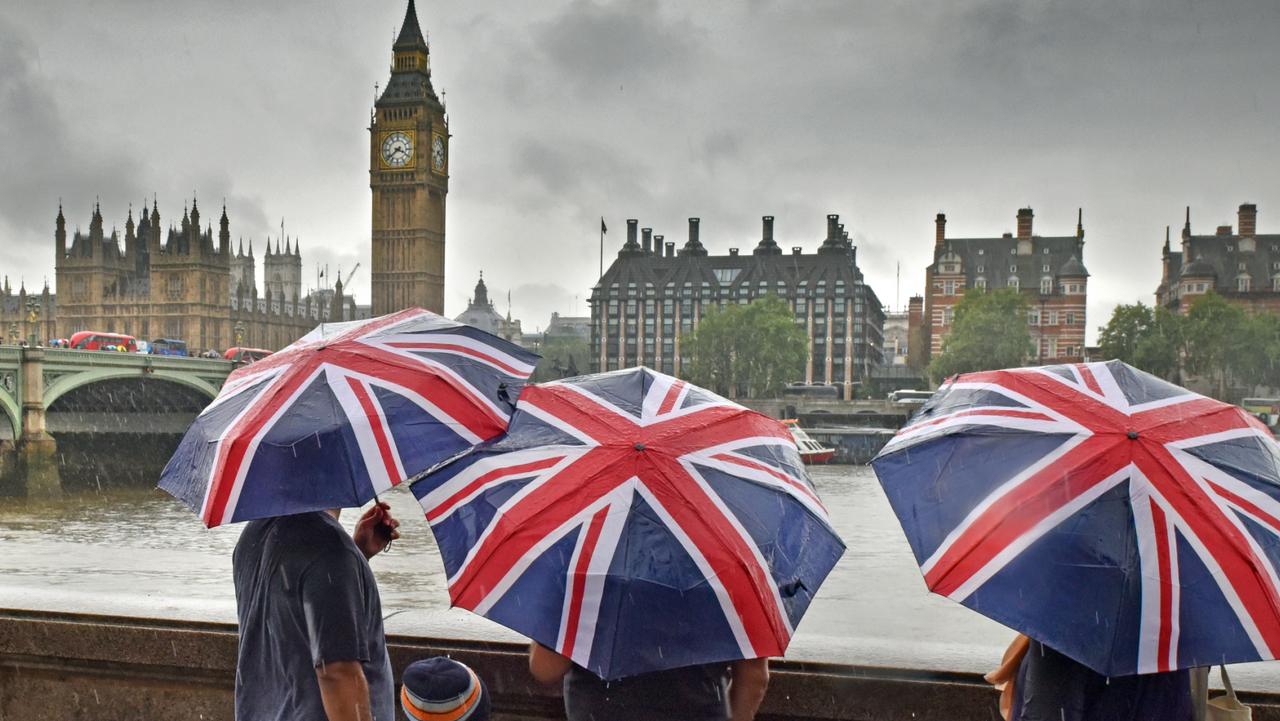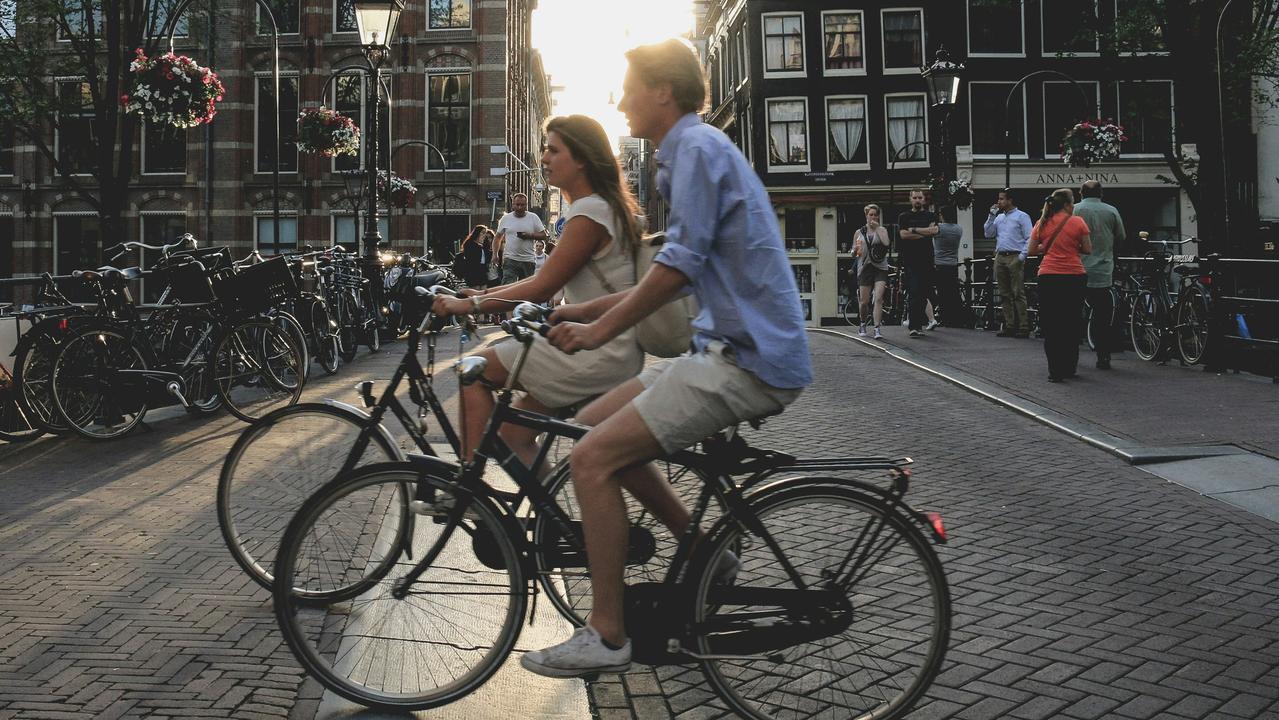Reason this seemingly blissful sight in Greece makes locals furious
This picture may appear as though everything is bliss but it makes locals furious. And it’s a sign of how travelling Europe is about to change.

Europe was absolutely pumping with tourists this northern summer, proving travel is back.
But along with the surge in sunny happy snaps filling up our social media feeds, there is increased concern huge numbers of tourists are being welcomed back at the expense of locals and the environment.
On the Greek island of Paros, locals are fighting to “reclaim” their beaches, with expensive sun lounges and umbrellas marketed at tourists taking up the space they used to lay their towels for free.
Frustrated residents are demanding a crackdown on beachside businesses that they say are expanding sunbeds past the designated areas they have licences for.
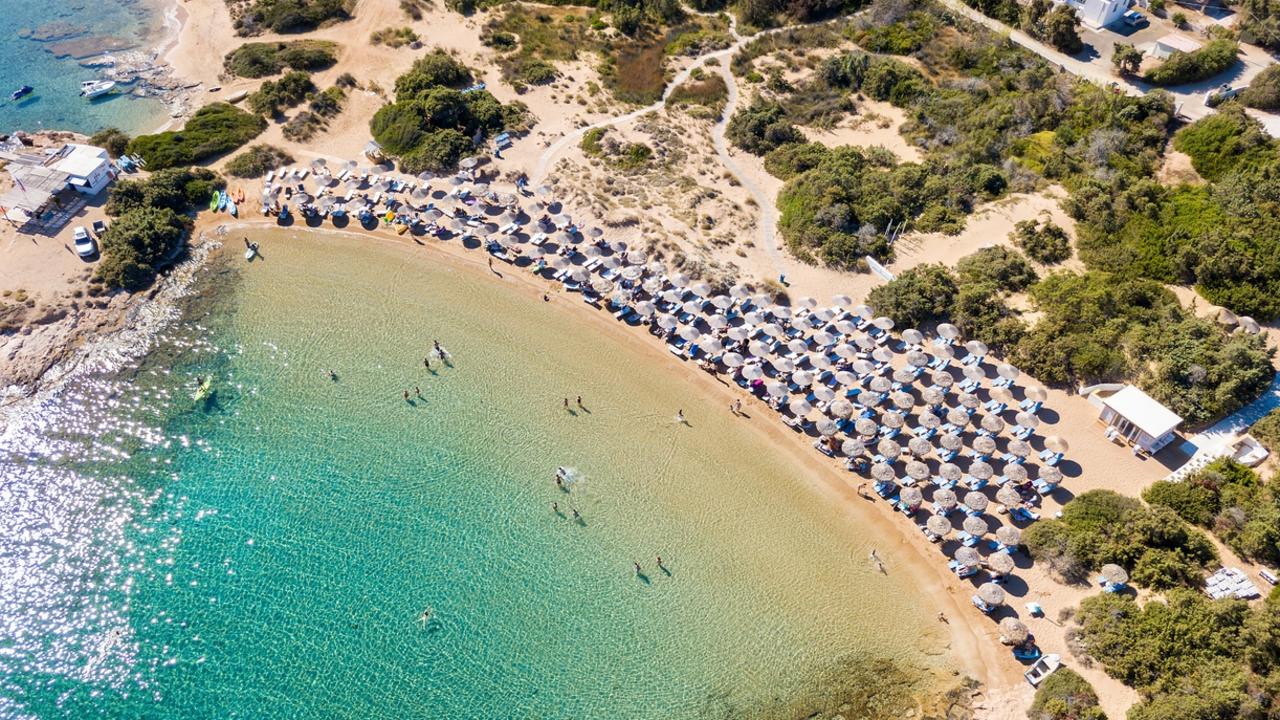
It is a frustration for some tourists too, who don’t want to pay exorbitant costs to use the beaches.
On Kolymbithres beach this summer, one of Paros’ most famous, Aussie journalist Melissa Iaria nabbed a sunbed for what she thought was 7 euros ($12) before finding out it was actually 70 euros ($116).
In an article for Escape, she spoke of Greek Australians who were shocked by the sheer number of lounges and umbrellas “cluttering” the beaches.
Zoe, a young woman living in Paros, who had been protesting with her family, explained: “Our concern is that people no longer have the choice to enjoy many beaches without paying the hefty prices because there is no space that isn’t occupied by chairs.”

Nicolas Stephanou, a local resident part of the campaign, told BBC that Greece needed a more sustainable tourism strategy as aside from the beach issue, traffic and prices were “out of control” with locals not being able to afford to go to a bar or restaurant.
He wants the Cycladic islands in Greece to move away from being marketed as a luxury destination and get back to its roots.
“There is amazing history here, archaeological sites, walking paths, good wine and agricultural produce,” he said.
“This can attract a more responsible visitor than one who just wants to sit on a sun lounger with a cocktail.”
The campaign, dubbed the “Towel Movement” or “Beach Towel Revolt”, is not just isolated to Paros. It is happening across other Greek islands too.
As the movement spread, authorities reacted by sending inspectors to conduct checks.
Sara King, general manager of purpose at Melbourne-based Intrepid Travel, told news.com.au with tourism numbers returning to pre-Covid levels, many locals across Europe were taking measures into their own hands.
“The break in tourism has definitely allowed local residents to enjoy quieter, less crowded streets, and cleaner environments, allowing them to realise what they were missing,” she said.
“It also provided an opportunity for reflection on the role of tourism in local communities and the potential for more sustainable and responsible practices.”

Ms King said it was no surprise the locals in Greece were drawing attention to the negative impacts of overtourism with the Greek National Tourism Organisation already last year urging international travellers to explore the country beyond just the popular islands.
Greece isn’t the only European country where locals are fighting for beach space.
In Benidorm, on the Mediterranean coast of Spain, locals made international headlines in July after they were photographed setting up their beach chairs and umbrellas before dawn to beat tourists to the best spots.
Ms King said the changes we are witnessing in Europe to tackle overtourism, such as introducing fees and visitor caps at hotspots, were examples of broader trends that we can expect to see in the future.
“These actions reflect the growing awareness of the challenges associated with mass tourism and the need for more responsible and sustainable practices,” she said.
Aussie travellers are encouraged to visit lesser-known destinations when they can.
“It’s important for tourists to acknowledge the impacts of overtourism on local communities and how they can make the most of exploring less popular locations,” Ms King said.
“Rather than visiting popular destinations like Santorini, travellers can take on destinations like Naxos, where they’ll be treated to unspoilt beaches and charming villages.”
Intrepid takes about 300,000 people on about 1000 trips a year to more than 120 countries, where groups of about 10 people travel with a local leader.
About 40 per cent of those travellers are Australians, followed by Brits and Americans.
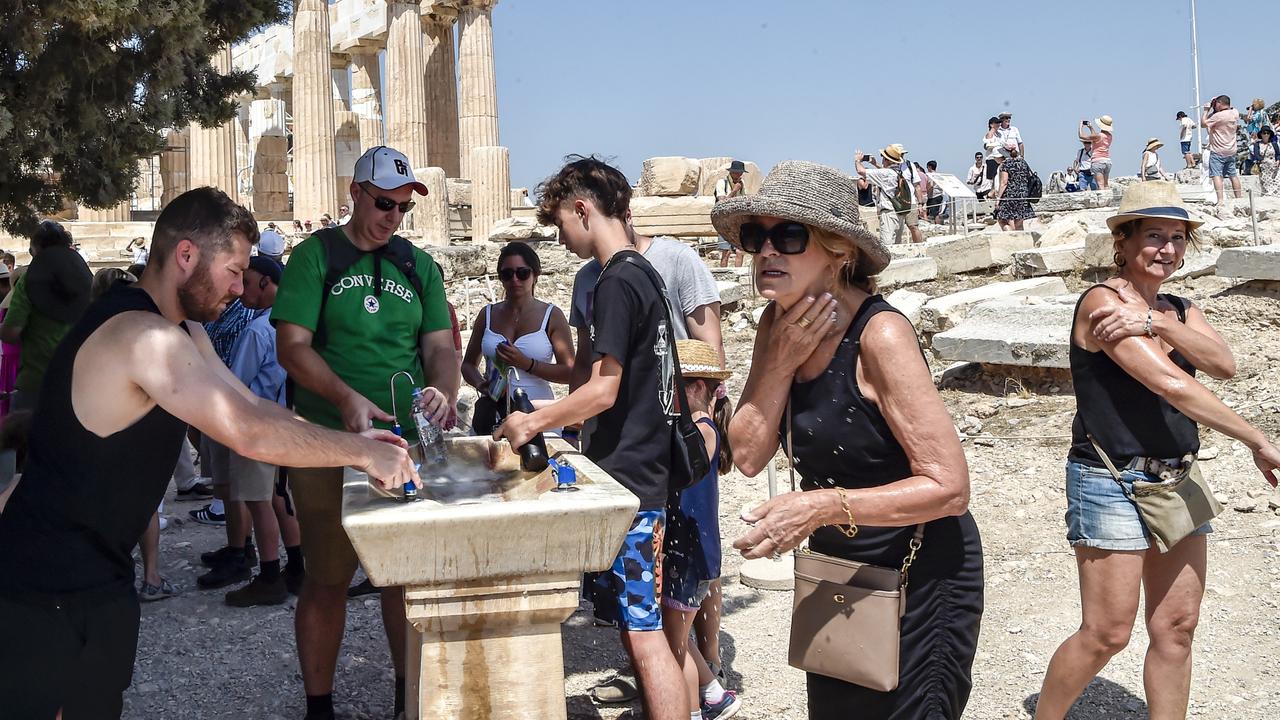
On the Greek mainland, the government introduced a new rule earlier this month capping the number of visitors to the Acropolis in Athens.
The famous attraction now only allows a maximum of 20,000 people per day.
Up to 23,000 had been crowding the hilltop attraction, which raised safety concerns for both the monument and the crowds hoping to get a glimpse of it.
“That’s a huge number,” Culture Minister Lina Mendoni said. “Obviously tourism is desirable for the country, for all of us. But we must work out how excessive tourism won’t harm the monument.”
Entry for visitors is staggered throughout the day to ensure overcrowding isn’t an issue.
Also this month, another European tourist hotspot made a big call on a proposal it had been debating for years due to overtourism.
Venice in Italy will trial charging day-trippers 5 euro ($8) to visit from spring 2024.
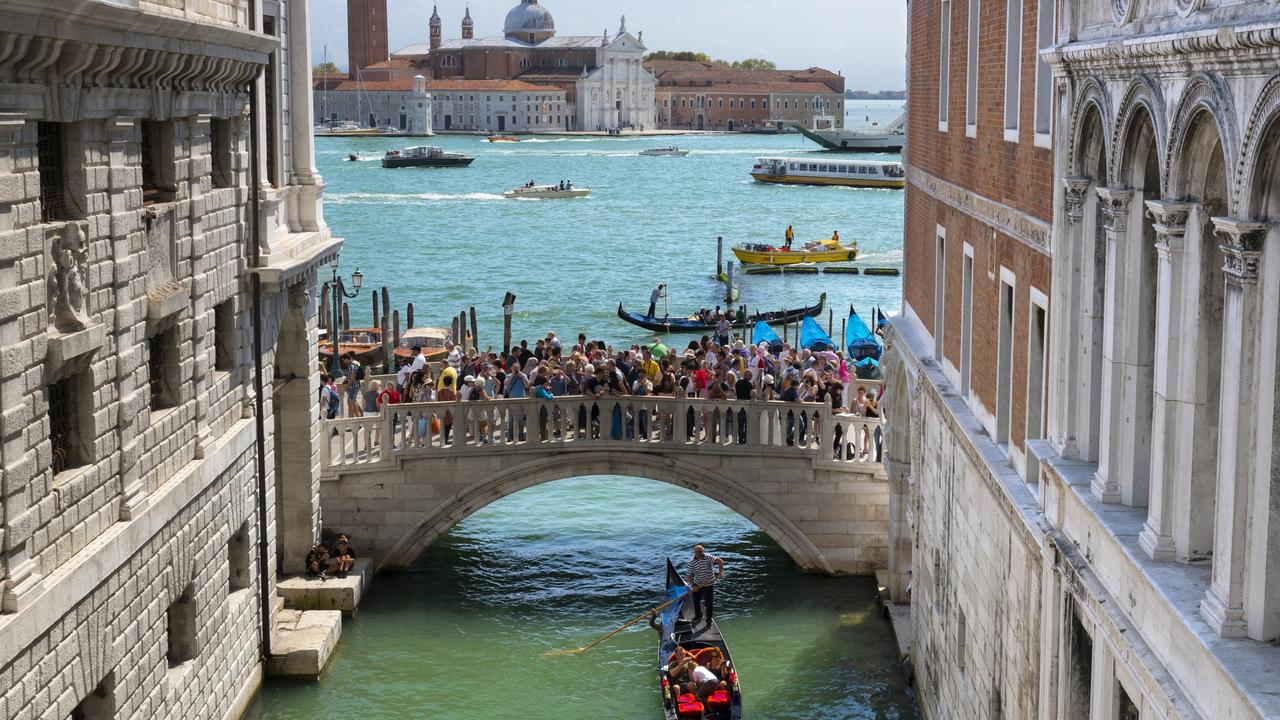
The council executive backed the move just weeks after UN cultural agency UNESCO recommended the historical city be added to its list of world heritage in danger, in part because of the impact of mass tourism.
Mayor Luigi Brugnaro urged that Venice was still “open to everyone”.
He added: “Regulating tourist flows in certain periods is necessary, but that does not mean closing the city.”
The city is yet to reveal how many tickets will be sold per day, meaning some tourists could be turned away on entry.




